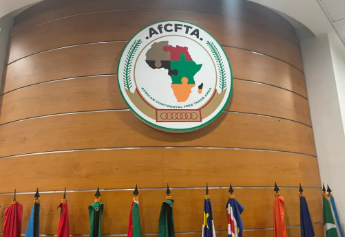Charles Abuede
Trade and economic experts have said that the African private sector can play a major role in realizing the goals of the African Continental Free Trade Agreement (AfCFTA) as they can be brought together to ensure that trade policies within the AfCFTA agreement are not inimical to the participating businesses in the free trade area.
Edem Adzogemu, founder of Afrochampions and private sector lead at the AfCFTA made this declaration during a virtual conference on the African Continental Free Trade Agreement (AfCFTA), featuring AfCFTA secretariat, policy and business leaders and themed,: ‘Understanding the AfCFTA: Implementation, Implications and Opportunities’. The webinar, monitored by Business A.M, was organised by Invest in Africa (IIA) in partnership with Standard Chartered Bank.
Edem, who along with other panellists expressed optimism on the AfCFTA, said that the private sector can play a major role in actualizing the aim of the trade agreement and citing the possibility of the continent’s free trade market providing regulators with the modalities that will see the movement of goods and services across borders.
Speaking on private sector benefits, Edem said: “For a continent with large trade market, the participants see AfCFTA as legal rights that need to be enforced. The private sector can play a major role as they can be brought together to make sure the policy is not inimical to the participating small businesses. We hope AfCFTA will provide regulators with modalities for goods movement across borders. As investments continue to flow into manufacturing, shipping and carriage may witness challenges.”
On the opportunities and benefits for SMEs he disclosed that it would depend on efforts put into the actualization of the agreement. “There is pressure with COVID-19 and we look forward to seeing more products in the next 8 to 24 months and beyond. We hope to see more of business and goods movement.
“We expect negotiations with member states because most SMEs and multinationals are moving goods across continents, we see global multinationals doing businesses, we look forward to more of businesses and lower costs of doing business. Also, we look forward to seeing an operational standard of harmonization of goods movement across the continent, with customs and cheaper cost of goods across the continent,” Edem declared.
Raiza khan, managing director and chief economist, Africa and Middle East at Standard Chartered Bank, Chief Economist for Africa & Middle East, in her contribution, asserted that it was important to create an atmosphere that can enable a good playing business and macro environment at the implementation of the free trade across the continent, adding that owing to the COVID-19, contractions and weaknesses were seen in several economies and that more challenging, were how to stimulate growth in these economies where growth has recorded negative, “though, we have seen weaker growth since oil price collapse in 2014,” she noted.
Silver Ojakol, a trade economist and chief of staff at the AfCFTA secretariat, Uganda, expressed that the aim of the free trade in Africa is to bring together a market of about 1.3 million individuals across the smaller and larger markets in Africa.
“The AfCFTA is an actualization of the Abuja Free Trade Agenda. The drive by Heads of States was a result of the market division. The aim of the AfCFTA is to bring together the market of about 1.3 million people, with the smaller markets amounting to less than $2 billion in GDP while the larger markets as Nigeria, Kenya, South Africa, etc stands above the figure,” he explained.
According to Ojakol, the smallness of these economies for investors to put in their resources was another drive to bringing together these markets, adding that to achieve the trade liberalization agenda, three protocols highlighted under the agreement must be followed, namely, protocol of trade in goods, protocol of trade in services and protocol of settlement of trade disputes.
He stated that about 13 persons started the Intra-African trade with about $35 billion projected as the annual trade GDP, but the trade economist noted that while tariff liberalization is to start January 1, 2021, what will change from January 1 is that African businesses or products that qualify under the rules of origin will begin trade.
“We are still in the stage of negotiating the modalities of tariff offers in which the modalities are seen as 90 per cent of the tariff will be liberalized over a 5-year maximum tenor. From January 1 2021, traders or participants in the free trade area will be levied 2 per cent instead of 10 per cent as tariff while 7 per cent will be for sensitive products for a 10 year period,” Ojakol revealed.
The AfCFTA started in 1957 when the European Union was being set up with only six members at the time. Presently, the AfCFTA is the biggest trade agreement across a single continent with 54 members at the start out of 55 countries in Africa, excluding Eritrea, while 28 have ratified. However, the main objective of the trade agreement is to create a single market for goods and services, with free movement of business persons and investments.








